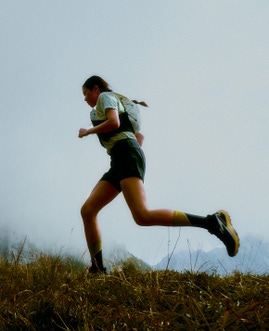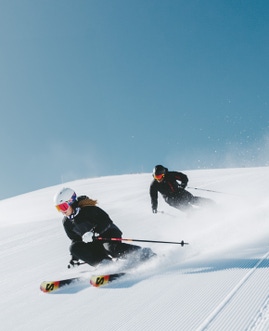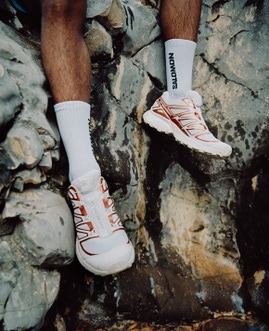After Alaska camp, my coach and I planned to give me a week where I wrote my own training plan, kept the hours and intensity extremely low, and focused on recovery. It was nice to have a mini-vacation in the middle of summer training, just to hit the reset button and come back refreshed and ready to keep the quality of each session high. So where did I go? To Canada! I had a really awesome week with my boyfriend, Wade, and his family in Winnipeg. With the exception of while we were training, I didn't think about skiing, and that was a very good thing for me. Cabin time, lake swimming, hanging out at the pool...it was perfect.
After that week, I flew to Duluth, Minnesota to drop in on the U.S. National U-16 camp, which took the best Nordic skiers under the age of 16 from around the country and brought them together for a chance to train hard, and meet new skiers that they'll be racing with throughout their careers. Most nights there was a "ski-education" presentation to go over training, racing, and get everyone inspired. I hadn't been to Duluth in way too long and it was really fun to be skiing up on the north shore and swimming in Lake Superior again. I always enjoy getting to guest coach junior skiers, and it's inspiring for me to see everyone working so hard and improving so much over the years. It was some serious deja vu doing the same drills, with Bryan Fish there as head coach, just as he was when I was at these camps as a junior.
After the 2+ hour ski, we headed over to the island by split rock lighthouse and did a little swimming and cliff jumping. I love this stuff. It’s the best way to end a hot, sunny workout. When we got back from training I gave a presentation on world cup racing, what our life is like living on the road (hint: it's never boring) and what summer training is like. The other big emphasis was on maximizing the quality of the training you do in the summer by getting little details right, like having a small goal for every training session, and taking care of yourself afterwards by drinking, eating and getting dry clothes on. Unless you're swimming right away, in which case you should go for it and change later.
And then, the big revelation: they don't hand out medals for training the most hours. They hand out medals for racing the fastest. It's not just about the hours. It's what you DO with the hours that YOUR body can handle that matters. Yes, you do have to train hard, but oftentimes we tend to focus on getting a certain number of hours because you read somewhere that, say, Therese Johaug trains 1,200 hours. For her, that works, and she's great at it! But for most people, their body will break down and they will have a suppressed heart rate and not be able to get into race gear when the time comes.
Every body is different. I could hand out my training plan to everyone I know, we'd all do the same exact plan, and on race day we'd all race differently because everyone responds to training differently. Some people need a lot of volume, some need more intensity, some need a lot of sprint training and some don't. It's up to you and your coach to figure out over time what your body responds to, and what you need. But ultimately, it's your job as an athlete to honestly check your recovery and how tired you are and adjust accordingly. And that's really, really hard. It's so much easier to focus on the hours and just do more, more, more! But that's how you get tired and crash. Believe me, I know because I've done it.
In the fall of 2014, I didn't qualify for the rounds in two skate sprints in a row. It was the first time I'd failed to qualify in the top-30 since my very first World Cup sprint in 2011. It was a big slap to the face, but not a surprise because that summer and fall I'd trained more than my body could handle and had to go on emergency rest in October. My season eventually swung around and by the World Champs in Falun, I was racing at my very best, but if my coaches hadn't stopped me and gotten me to rest in the fall I would have lost the entire season. Lesson learned.
Bottom line: I'm still working on it, and I'm not amazing at it, but it's the most important part of my job. I don't need help getting motivated to train hard. I need help feeling confident and OK with skipping a workout when I'm tired because deep down I know that coming to the next training session able to kick ass is a lot more productive than stubbornly driving myself into the ground. I'm still working on it, but the progress I've made so far in learning to read my body is what let me take a huge step forward in racing last season on the World Cup.
Salomon Nordic team athlete Jessie Diggins grew up in Minnesota. Among her many accomplishments on the World Cup tour was a 2nd place in the 10km Skate at the 2015 World Championships and first in the Team Sprint at 2013 World Championship.












